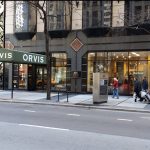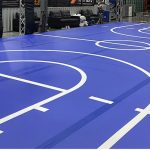A new report by the National Labor Committee claims that NFL jerseys from Reebok were sewn under illegal sweatshop conditions at the Chi Fung factory in El Salvador for at least the last four years.
The study from the U.S. sweatshop watchdog group found that factory workers, often forced to work 12-hour shifts, put in 61 to 65 hours a week, including 12 to 15 hours of obligatory and unpaid overtime. The workers were paid a below-subsistence wage of 72 cents an hour, which the labor organization said meets less than a quarter of a family’s basic subsistence needs for food, housing, healthcare and clothing.
An assembly line of 28 workers had a mandatory production goal of completing 2,300 NFL jerseys in the regular nine-hour shift, from 7:00 a.m. to 5:00 p.m., the study claims. The production goal was 255 jerseys per hour, which meant that each of the 28 workers in effect had to sew nine jerseys per hour, or one jersey every 6.6 minutes.
The study estimated that workers were paid 10 cents for each $80 Peyton Manning NFL jersey they sewed.
“It does not have to be this way,” said National Labor Committee director Charles Kernaghan, in a statement. “If the NFL and Reebok doubled the wages, so the workers and their families could climb out of misery and at least into poverty, the direct labor cost to sew the Peyton Manning jersey would still be just 20 and a half cents, or less than three-tenths of one percent of the shirt’s retail price.”
“The $250 million NFL-Reebok licensing mega-agreement has done nothing to lift workers across the developing world who sew NFL garments out of abject poverty,” said Kernaghan.
“We always knew they were cheating us,” one Salvadoran woman told the NLC, according to a statement. “We knew they werent paying overtime, but we dont have any other choice …many of us were trapped without any alternatives.”
The report also noted that any of the NFL-Reebok workers looking to exercise their right to organize a union would be immediately fired and blacklisted.
“If the NFL showed half as much concern for human and worker rights as they do about the counterfeiting of their jerseys, this factory could be cleaned up overnight,” Kernaghan said. “There is not a consumer in the United States who does not believe that if the NFL and Reebok really wanted to clean up the factory, it would be done quickly and correctly. If great athletes like Peyton Manning would speak out, it would have a tremendous impact.”














